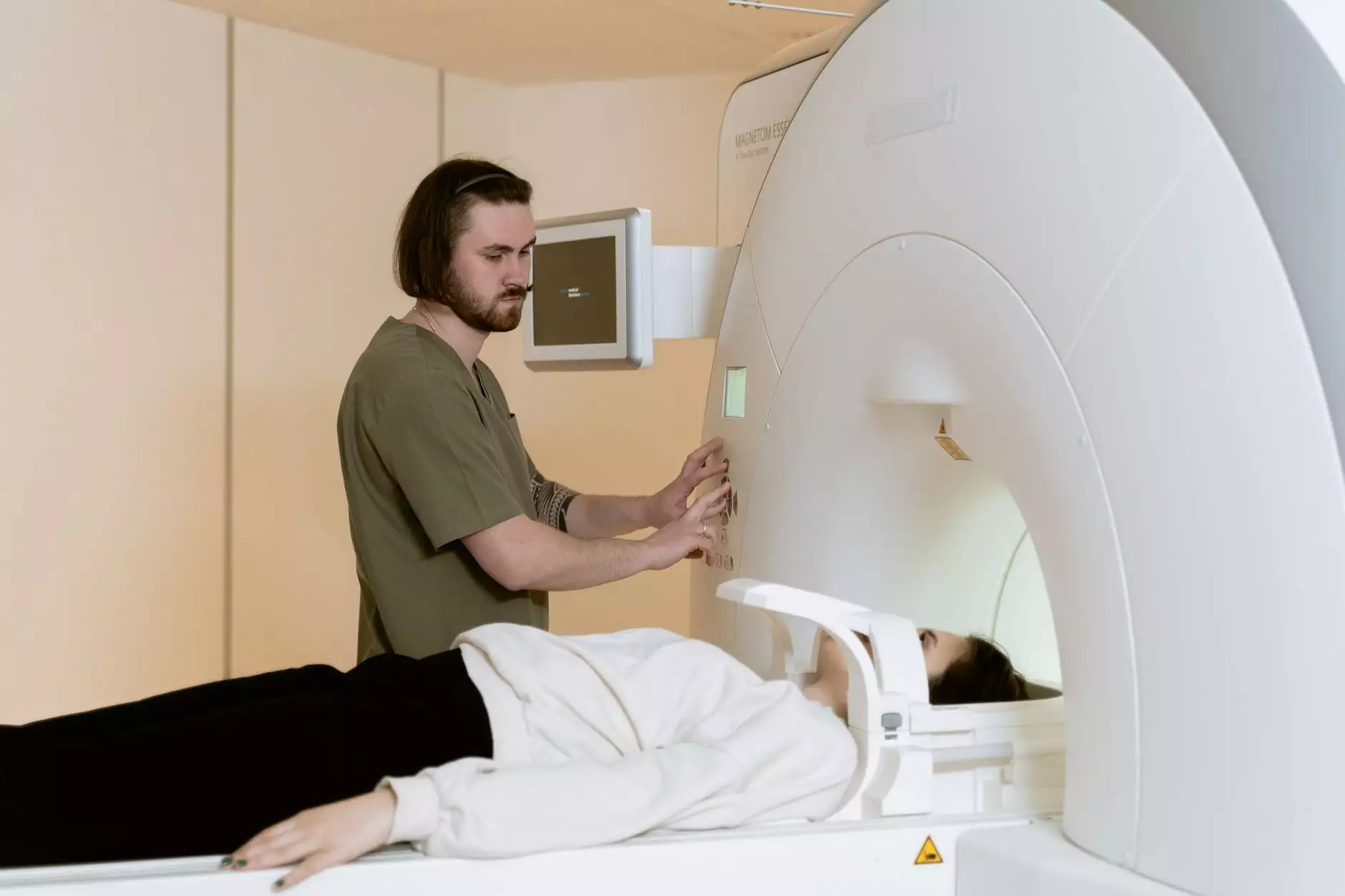Expert Guidance on Oncology Surgery and the Role of an Oncology Specialist

In the ever-evolving landscape of medical science, oncology stands as a beacon of hope and innovation in the fight against cancer. Central to this effort is the crucial role played by oncology specialists—medical experts dedicated to diagnosing, managing, and surgically treating various forms of cancer. At oncologicalsurgery.net, our focus is on providing the highest level of oncological surgical care, backed by cutting-edge technology, rigorous clinical expertise, and a compassionate approach to patient wellbeing.
The Significance of Oncology Surgery in Cancer Treatment
Oncology surgery constitutes a vital component of comprehensive cancer care. When performed by a skilled oncology specialist, surgery aims to remove malignant tumors, eradicate cancerous tissues, and to improve patient survival rates. This surgical intervention often works in conjunction with other therapies such as chemotherapy, radiation therapy, and immunotherapy to deliver a multi-modal approach for effective cancer management.
Understanding the Scope of Oncology Surgery
- Curative surgeries: Procedures aimed at completely removing cancerous tissues to achieve remission or cure.
- Palliative surgeries: Interventions designed to relieve symptoms, improve quality of life, or prevent complications caused by advanced cancers.
- Diagnostic surgeries: Biopsies and minimally invasive procedures that assist in accurate staging and diagnosis of cancer.
- Reconstructive surgeries: Restorative procedures post-tumor removal to enhance physical appearance and functionality.
The Role and Expertise of an Oncology Specialist
An oncology specialist possesses specialized training in diagnosing and treating various cancers through medical, surgical, and radiation approaches. Their expertise is pivotal in ensuring that each patient receives tailored treatment plans centered on maximizing outcomes and minimizing adverse effects.
Key Qualities of a Skilled Oncology Specialist
- Expertise in surgical oncology: Mastery in performing complex tumor resections with precision.
- Multidisciplinary collaboration: Working seamlessly with radiologists, medical oncologists, pathologists, and supportive care teams.
- Depth of knowledge: Staying updated with the latest research, innovative techniques, and emerging therapies.
- Patient-centered approach: Prioritizing patient comfort, informed consent, and emotional support throughout treatment.
- Attention to detail: Ensuring comprehensive removal of cancerous tissue to reduce recurrence.
The Advancements in Oncology Surgical Techniques
Modern oncology specialists utilize transformative technologies that significantly enhance surgical precision, reduce operative risks, and promote quicker recovery. From minimally invasive methods to robotic-assisted surgeries, the evolution of surgical techniques has revolutionized cancer care.
Minimally Invasive Surgery in Oncology
Techniques such as laparoscopic and thoracoscopic surgeries allow for smaller incisions, less postoperative pain, and faster rehabilitation. These methods are especially beneficial for tumors located in sensitive or hard-to-reach areas, including the liver, pancreas, and gastrointestinal tract.
Robotic-Assisted Surgical Procedures
Robotic systems like the Da Vinci Surgical System enable oncology specialists to perform complex surgeries with unparalleled precision. The enhanced 3D visualization, tremor filtration, and fine motor control facilitate meticulous tumor removal, even in anatomically challenging cases, leading to improved outcomes.
Emerging Technologies and Innovations
Technologies such as intraoperative imaging, fluorescence-guided surgery, and augmented reality are becoming integral tools in surgical oncology. These advancements help surgeons delineate tumor margins accurately, preserve healthy tissues, and assess residual disease in real-time, which is invaluable for achieving optimal treatment results.
Importance of Personalized Surgical Planning
Each cancer case is unique, demanding a personalized approach rooted in meticulous evaluation. Advanced imaging modalities—such as MRI, CT scans, PET scans, and 3D reconstructions—assist oncology specialists in planning surgeries tailored to the patient's specific anatomy and disease extent. Personalized surgical strategies lead to better oncologic clearance, reduced complications, and enhanced functional preservation.
Multidisciplinary Approach in Oncological Surgery
Optimal cancer care hinges on collaboration among a team of specialists. The multidisciplinary approach ensures comprehensive decision-making, blending surgical expertise with medical oncology, radiology, pathology, and supportive care professionals.
This team-based method facilitates:
- Accurate staging and diagnosis
- Tailored treatment sequences
- Postoperative management and rehabilitation
- Psychosocial support
Patient-Centric Care: What to Expect During and After Surgery
At oncologicalsurgery.net, we believe that comprehensive patient care extends beyond the operating room. Our oncology specialist team emphasizes clear communication, emotional support, and post-surgical rehabilitation.
Patients can expect:
- Preoperative counseling to understand the procedure, risks, and recovery expectations
- State-of-the-art anesthesia for safety and comfort
- Minimally invasive surgical techniques that reduce hospital stays and facilitate quicker return to daily activities
- Personalized postoperative care plans, including pain management, wound care, and nutritional support
- Long-term follow-up for recurrence surveillance and survivorship support
The Future of Oncology Surgery and Specialist Roles
The future of oncological surgery promises even greater possibilities with innovations like artificial intelligence, genomics, and personalized medicine. Oncology specialists will increasingly adopt these technologies to enhance diagnostic accuracy, predict treatment responses, and develop targeted surgical strategies.
Furthermore, as the understanding of tumor biology deepens, surgical interventions will become more precise, less invasive, and more effective in preventing recurrence. The integration of regenerative medicine and bioengineering may also open new avenues for reconstructive surgeries after tumor excision.
Why Choose Our Facility for Your Cancer Surgery?
Choosing the right facility and oncology specialist is pivotal to successful cancer treatment. Our hospital, associated with oncologicalsurgery.net, offers:
- Leading-edge surgical technology including robotic systems and intraoperative imaging
- Highly trained, board-certified oncology specialists with extensive experience in complex oncological procedures
- Multidisciplinary teams committed to personalized patient care
- Comprehensive support services including counseling, rehabilitation, and survivorship programs
- Accreditations and clinical research participation ensuring access to the latest treatments
Conclusion: Embracing Excellence in Cancer Surgery
The journey through cancer treatment is challenging, but with a dedicated oncology specialist and a comprehensive healthcare team, patients can access the best possible surgical care tailored to their needs. Innovation continues to transform oncological surgery, offering hope and improved outcomes for countless individuals worldwide.
Whether you seek diagnosis, innovative surgical options, or post-treatment support, oncologicalsurgery.net stands at the forefront of modern cancer care. Trust in the power of expert surgical intervention and compassionate, personalized treatment to navigate your health journey with confidence and hope.









